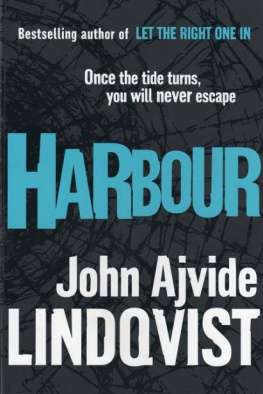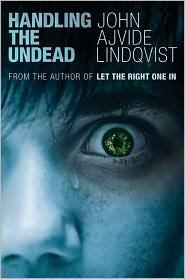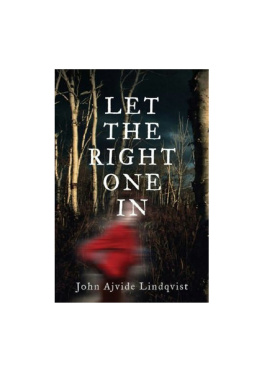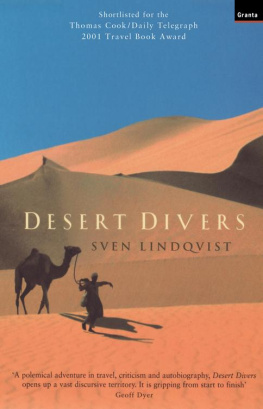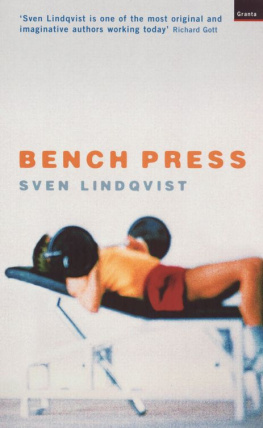John Ajvide Lindqvist - Harbour
Here you can read online John Ajvide Lindqvist - Harbour full text of the book (entire story) in english for free. Download pdf and epub, get meaning, cover and reviews about this ebook. publisher: Quercus, genre: Detective and thriller. Description of the work, (preface) as well as reviews are available. Best literature library LitArk.com created for fans of good reading and offers a wide selection of genres:
Romance novel
Science fiction
Adventure
Detective
Science
History
Home and family
Prose
Art
Politics
Computer
Non-fiction
Religion
Business
Children
Humor
Choose a favorite category and find really read worthwhile books. Enjoy immersion in the world of imagination, feel the emotions of the characters or learn something new for yourself, make an fascinating discovery.
- Book:Harbour
- Author:
- Publisher:Quercus
- Genre:
- Rating:3 / 5
- Favourites:Add to favourites
- Your mark:
- 60
- 1
- 2
- 3
- 4
- 5
Harbour: summary, description and annotation
We offer to read an annotation, description, summary or preface (depends on what the author of the book "Harbour" wrote himself). If you haven't found the necessary information about the book — write in the comments, we will try to find it.
Harbour — read online for free the complete book (whole text) full work
Below is the text of the book, divided by pages. System saving the place of the last page read, allows you to conveniently read the book "Harbour" online for free, without having to search again every time where you left off. Put a bookmark, and you can go to the page where you finished reading at any time.
Font size:
Interval:
Bookmark:
Harbour
John Ajvide Lindqvist
Welcome to Domar.
It's a place you won't find on any maritime chart, unless youlook really carefully. It lies just about two nautical miles east of Refsns inthe archipelago in southern Roslagen, a considerable distance in from Sderarmand Tjrven.
You will need to movesome of the islands out of the way, create empty expanses of water between themin order to catch sight of Domar. Then you will also be able to see thelighthouse at Gvasten, and all the other landmarks that arise in this story.
Arise, yes. That's theright word. We will be in a place that is new to people. For tens of thousands of years it hasbeen lying beneath the water. But then the islands rise up and to the islandscome the people, and with the people come the stories.
Let us begin.
PARTONE
Banished
Where the waves thunder and thestorms cry.
Where the breakers crash and the saltwater whirls,
that is where the place that is ours risesfrom the sea.
The legacy that passes from father toson .
LennartAlbinsson Rdmans
The sea has given and the sea has taken away
Whoflies there in the feather-harbour, who climbs up there out of the black,shining waters?
Gunnar Ekelf Tjrven
Sea buckthorn
Three thousand years ago, Domar was nothing but a large,flat rock sticking up out of the water, crowned by an erratic boulder the icehad left behind. One nautical mile to the east it was possible to glimpse theround shape that would later rise out of the sea and be given the nameGdvasten. Apart from that, there was nothing. It would be another thousandyears before the surrounding islets and islands dared to poke their heads abovethe water, beginning the formation of the archipelago that goes under the nameof Domar archipelago today.
By that time the seabuckthorn had already arrived on Domar.
Down below the enormousblock left by the ice, a shoreline had formed. There in the scree the seabuckthorn worked its way along with its creeping roots, the hardy shrub findingnourishment in the rotting seaweed, growing where there was nothing to grow in,clinging to the rocks. Sea buckthorn. Toughest of the tough.
And the sea buckthornproduced new roots, crept up over the water's edge and grew on the slopes untila metallic-green border surrounded the uninhabited shores of Domar like afringe. Birds snatched the fiery yellow berries that tasted of bitter orangesand flew with them to other islands, spreading the gospel of the sea buckthornto new shores, and within a few hundred years the green fringe could be seen inall directions.
But the sea buckthornwas preparing its own destruction.
The humus formed by itsrotting leaves was richer than anything the stony shores could offer, and thealder saw its chance. It set its seeds in the mulch left by the sea buckthorn,and it grew stronger and stronger. The sea buckthorn was unable to tolerateeither the nitrogen- rich soil produced by the alder, or the shade from itsleaves, and it withdrew down towards the water.
With the alder cameother plants that needed a higher level of nutrition, competing for theavailable space. The sea buckthorn was relegated to a shoreline that grew fartoo slowly, just half a metre in a hundred years. Despite the fact that it hadgiven birth to the other plants, the sea buckthorn was displaced and set aside.
And so it sits there at the edge of the shore, biding itstime. Beneath the slender, silky green leaves there are thorns. Big thorns.
Two small people and alarge rock (July 1984)
They were holdinghands.
Hewas thirteen and she was twelve. If anyone in the gang caught sight of them,they would just die right there on the spot. They crept through the fir trees,alert to every sound and every movement as if they were on some secret mission.In a way they were: they were going to be together, but they didn't know thatyet.
Itwas almost ten o'clock at night, but there was still enough light in the skyfor them to see each other's arms and legs as pale movements over the carpetof grass and earth still holding the warmth of the day. They didn't dare lookat each other's faces. If they did, something would have to be said, and therewere no words.
Theyhad decided to go up to the rock. A little way along the track between the firtrees their hands had brushed against each other's, and one of them had takenhold, and that was it. Now they were holding hands. If anything was said,something straightforward would become difficult.
Anders'skin felt as if he had been out in the sun all day. It was hot and painful allover, and he felt dizzy, as if he had sunstroke; he was afraid of tripping overa root, afraid of his hand becoming sweaty, afraid that what he was doing was outof order in some way.
Therewere couples in the gang. Martin and Malin were together now. Malin had goneout with Joel for a while. It was OK for them to lie there kissing wheneverybody could see them, and Martin said he and Malin had got as far as pettingdown by the boathouses. Whether or not it was true, it was OK for them tosayand dothat kind of thing. Partly because they were a year older, partlybecause they were good-looking. Cool. It gave them licence to do a lot ofthings, and to use a different language too. There was no point in trying tokeep up, that would be embarrassing. You just had to sit there staring, tryingto laugh in the right places. That's just how it was.
NeitherAnders nor Cecilia was a loser. They weren't outsiders like Henrik andBjrnHubba and Bubbabut they weren't part of the clique that made the rulesand decided which jokes were funny, either.
ForAnders and Cecilia to be walking along holding hands was utterly ridiculous.They knew this. Anders was short and borderline spindly, his brown hair toothin for him to give it any kind of style. He didn't understand how Martin andJoel did it. He'd tried slicking his hair back with gel once, but it lookedweird and he'd rinsed it out before anyone saw it.
Therewas something flat about Cecilia. Her body was angular and her shoulders werebroad, despite the fact that she was slim. Virtually no hips or breasts. Herface looked small between those broad shoulders. She had medium-length fairhair and an unusually small nose dusted with freckles. When she put her hair upin a pony- tail, Anders thought she looked really pretty. Her blue eyes alwayslooked just a little bit sad, and Anders liked that. She looked as if she knew.
Martinand Joel didn't know. Malin and Elin didn't know. They had the feeling, saidthe right things and were able to wear sandals without looking stupid. But theydidn't know. They just did things. Sandra read books and was clever, but therewas nothing in her eyes to indicate that she knew.
Ceciliaknew, and Anders could see that she knew, which proved that he knew as well.They recognised one another. He couldn't explain what it was that they knew, but it was something. Something about life, about how thingsreally were.
Theterrain grew steeper, and as they made their way up towards the rock the treesthinned out. In a minute or two they would have to let go of one another'shands so they'd be able to climb.
Andersstole a glance at Cecilia. She was wearing a yellow and white striped T-shirtwith a wide neckline that revealed her collarbone. It was just unbelievablethat she had been linked to him for what must be five minutes, that her skinhad been touching his.
That she'd been his.
Shehad been his for five minutes. Soon they would let go, move apart and becomeordinary people again. What would they say then?
Anderslooked down. The ground was starting to become stony, he had to watch where hewas putting his feet. Every second he was expecting Cecilia to let go, but shedidn't. He thought perhaps he was holding on so tightly that she couldn't let go. It was an embarrassing thought, so he loosenedhis grip slightly. Then she let go.
Next pageFont size:
Interval:
Bookmark:
Similar books «Harbour»
Look at similar books to Harbour. We have selected literature similar in name and meaning in the hope of providing readers with more options to find new, interesting, not yet read works.
Discussion, reviews of the book Harbour and just readers' own opinions. Leave your comments, write what you think about the work, its meaning or the main characters. Specify what exactly you liked and what you didn't like, and why you think so.

